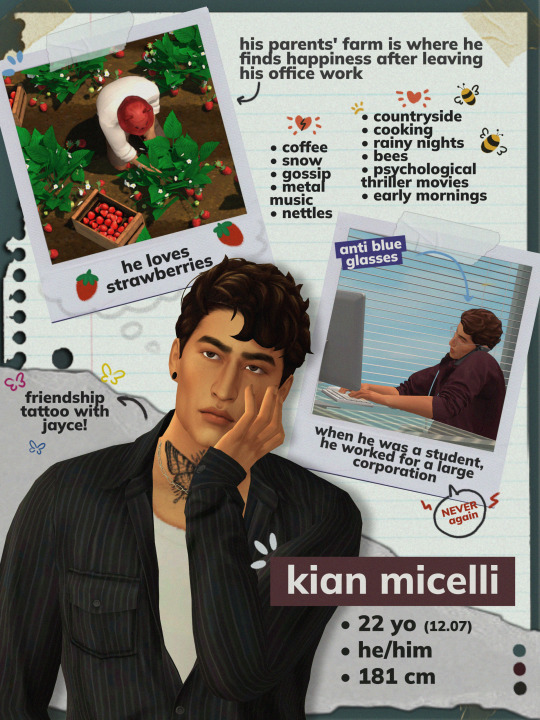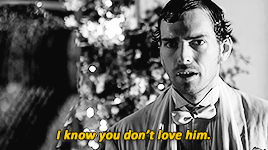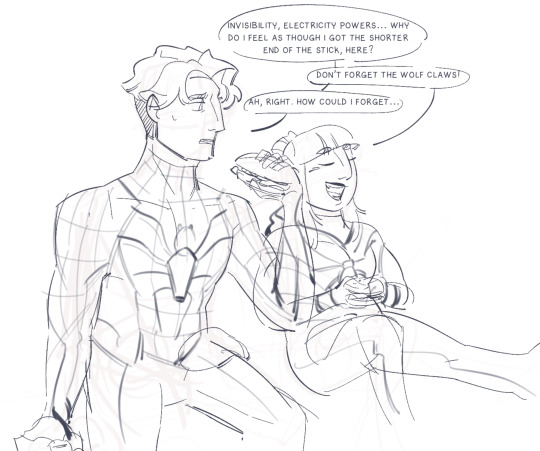#career adaptation
Explore tagged Tumblr posts
Text
Shaping the Future of Work: The Impact of AI and Quantum Computing on Employment
AI & Quantum Computing are a dual-edged sword: job displacement vs. new opportunities 🌐 In the Quantum age, we need to focus on retraining, upskilling & ethical tech deployment 🎓 Let's ensure a future where tech advancement & job security coexist 🤝
The landscape of employment is undergoing a pivotal transformation, with AI and Quantum Computing at the forefront of the debate on job displacement. In 2023, 37% of senior executives reported job losses due to AI, with projections indicating an increase to 44% by 2024, particularly impacting white-collar jobs estimated to see 29-45% of tasks replaced or significantly augmented by AI technologies…

View On WordPress
#AI#career adaptation#digital transformation#employment trends#future of work#job displacement#quantum computing#technological innovation#upskilling strategies#workforce development
0 notes
Text
AI Takeover: Get Secure or Get Replaced!
Embrace the AI era or fall behind! Innovate and learn new skills to thrive in the digital revolution. #AdaptToAI #LearnAndGrow #FutureOfWork
A colossal mech strides through a post-apocalyptic wasteland, the ground quaking beneath its massive feet. Alright fam, let’s huddle up and chop it up about something that’s been brewing in the digital streets, AI and our jobs. Now before y’all hit me with that eyebrow raise, let’s slide to the left for a fresh angle on this whole situation. Picture this: AI strolls up to the workplace like it…

View On WordPress
#AI Impact#Career Adaptation#Digital Revolution#Embracing AI#Future of Work#Job Market Evolution#Learning and Skills#Skill Development#ThinkSpiracy#ThinkTank Theorium#ThunkDeep
0 notes
Text
DREW STARKEY AS FLYNN RYDER. HATERS GONNA HATE BUT I SEE THE VISION IDC. 😮💨






#PLEASE THEY'RE THE SAME ???#or am i crazy ???#no i see it idc#WALK WITH ME GUYS#drew starkey#MANIFESTING#drew starkey pics#drew starkey career#my man my man my man#flynn rider#MY TWO BFS TOGETHER#tangled#movie adaptation
352 notes
·
View notes
Text
Ted saying that no driver has had this level of attention on them since Michael Schumacher...

Gentlemen, a short view into the past; Max's debut season, his Red Bull debut, the literal rule changed as a result of his debut in the sport... oh and everyone and their mother calling Kimi Max 2.0 and Toto's second chance at signing debut!Max since he failed the first time around...
#max verstappen#f1#formula 1#formula one#the sky sports commentators were literally clutching their pearls when max debuted 😭✋️#and practically screaming crying throwing up after the red bull switch was announced#gleefully questioning whether he was ready for it#him then winning his debut red bull race was chefs kiss#also... you can't really compare the attention schumi got#we've seen glimpses of it no question with the attention max & charles get#especially Charles as he is the predestined son of ferrari#ferrari is a religion after all#but schumi was on a whole another level#i can see max & charles reaching and exceeding it#but it was an insane level of attention#in the peak of paparazzi#the 90s and early 2000s were something else#not to say it's gotten better because it really hasn't but the way its done has changed#adapted to better suit the world of digital media so to speak#schumi was a cultural phenomenon to a lot of people including baby me he was f1 he was ferrari#i'ma stop before i start writing an essay about how Michael was F1's Diana because i feel thats where my head is at the moment lmao#also not ted also forgetting seb#my man got a penalty 6 seconds into f1 career 😭✋️#and was quickly dubbed the crash kid#max was crashtappen#max seb michael were all labelled aggressive#seb & michael only got appreciation when they were leaving/ when they left the sport#the history book on the shelf is always repeating itself
77 notes
·
View notes
Text

[ID: A doodle of a person with a speech bubble that illustrates what they're saying. Overlayed over the speech bubble is "I love cherry magic". Overlayed over the person is "Seeing socially and romantically awkward adults, who are still figuring things out, find romance makes me feel happy. You're never too old to have your first kiss or any other first. You're never too old to be happy", which illustrates a more detailed explanation in their thoughts that they're not sharing. /.End ID]
#cherry magic#yaoi bl#manga#career yaoi#I saw a meme with this template and was inspired to try to make something of it with a manga I really liked recently#which eas cherry magic#i finished the anime in less than 24 hours and went on to tackle the manga#can't wait to finish the live action adaptations#virginwithasthma.meme
135 notes
·
View notes
Text
i deadass dont have words left in me for sidgeno.
what do u mean sid assisted on his 500th goal. what do you mean he's assisted over 100 of geno's goals. more than any of geno's actual line mates. what do u mean did got his 1600th point off it.
why are they so deeply intertwined? any mention of one cannot come without the other. they've shared the highest highs, the lowest lows, they've taken this team from rock bottom to the stanley cup finals, and come away with three titles.
we are so lucky to have witnessed their greatness
#i cried so hard when geno scored i cant even describe it#evgeni malkin#so unbelievably happy for him i cant believe it#ive been following his career for fifteen seasons now#watched him grow and change and adapt and get older#and now he's in the history books forever. no question about it.#my all time favorite <3 love u zhenya#nhl#penguins#sidney crosby#sidgeno#penguins mate for life#PENGUINS MATE FOR LIFE!!!!
26 notes
·
View notes
Text

sheet for kian
victor's sheet
#oc: kian micelli#ts4#I feel the need to bring out some backstory#Kian leaves his house early because he planned to start a career in a big city and he worked hard to make that happen.#He got a position where he may be promoted after getting a degree and achieving his dream job#but he didn't enjoy it as much as he was expecting which broke him#He returned home and soon discovered that he supposed to stay there#Victor however would work in his parents' business for the rest of his life but he found it difficult to adapt to adulthood#He dropped out of college moved out with his parents and is now attempting to figure out his future steps#and they first met at this point#Kian gave himself time to work with his parents all summer before beginning looking for a job#Victor wants to begin a new life.#Before Victor’s family lived there but after several problems that include his brother they left#and now that he’s returned rumors about his family keep being spread so he needs to find a strength#oc stuff#my sims
172 notes
·
View notes
Text
Watch Nimona, guys.
Watch Nimona and then go buy the comic and also read Nimona, cause as nicely streamlined as the movie is they did change the style quite drastically (proportions and stuff, I’m not on abt the 3D-ness or the adjustments to make characters visually fit their cast better) and Nate’s original art is GOOD, and they left out some things I really liked in the comic (where was big buff guy nimona you monsters ToT) and comic has slower pacing that lets you have some more time w the characters, yada yada
NIMONA GOOD, CONSUME NIMONA IN ALL ITS MEDIA FORMATS
#nimona#nd stevenson#I have been a nimona stan since long before either nd or me had our respective top surgeries#I own that shit in book format I need you to understand how FEW THINGS I own in physical formats#don't get me wrong: movie incredible very good#as good a movie adaptation as one could've made for it in terms of writing (and animation/visuals good too)#but alas#I am a comic person I must also preach abt the comic#I do also appreciate that 'letting the transmasc comic idiots have big movie budget for their stories' now has precedent#as that will come in very handy for my own career
181 notes
·
View notes
Text










The Great Gatsby by F. Scott Fitzgerald
Kissing in the Rain, Episode 10 “Daisy & Jay” [x]
#kissing in the rain#shipwrecked comedy#perioddramaedit#userthing#the great gatsby#f. scott fitzgerald#audrey and henry#sinead persaud#sairus graham#my edits#kitredit#with her nose stuck in a book#black and white#classic literature#1920s#rain#true love's kiss#i keep having to make sure i haven't typed 'greater gatsby' haha#p.s. everyone go listen to 'the case of the greater gatsby' right now!#p.p.s. au where fig continues her hollywood career and stars in an adaptation of 'the great gatsby'?? :D
74 notes
·
View notes
Text







hit your faves with the spidey AU beam for fun and enrichment
AU doodles that spoil the new spidey game under the cut — warning for body horror.


anyone else scared
#octopath#octopath traveler 2#sketch#8path tag#NOTE: NOT A 1:1 ADAPTATION we have fun here.#temenos is a defense attorney helping the spideys gather info + helps them balance their real life stuff#ochette is in college. crick finished his degree but it's hard holding down a career as a superhero#ochette is objectively the cooler spidey w/ all the extra powers. also her alias is wolf spider need i say more#temenos mistral#crick wellsley#ochette
56 notes
·
View notes
Text
The Amazing Spider-Man should have been adapted into a tv show instead of movies.
#spider-man is the one comic book character that’s most deserving of a tv series#and they missed the opportunity to do it with andrew garfield’s spider-man#i’d rather that than what was supposed to be a reboot of tobey maguire’s spider-man#a new spider-man means a new idea#i would have loved to see a smallville type of spider-man series#what’d be different tho is that we would actually get to see spider-man in action from the very beginning#we’d be able to see so many different suits throughout the show#we’d get to see so many villians from his rogue gallery#we’d get to see peter go from his high school years to his college years then to his career years and they’d last longer than in the movies#we’d get to see so much more of peter’s important dynamics with other characters#if they had made a tv show instead maybe it’d be much better#those movies came out during the time television was still at its peak they missed the perfect opportunity to adapt a perfect spider-man#series#spiderman#marvel#marvel comics#mcu#spiderman comics#andrew garfield#the amazing spider man
10 notes
·
View notes
Text
Anon wrote: I'm an ENFP, I'm 30 years old and I’m really needing to work on my self-confidence for me and for dealing with people. I’ve read in our blogs some posts that reinforce the importance of developing skills to have confidence. I think it's very legitimate.
In this process of learning new things, I often find myself in great difficulty and my inner child agonizes with insecurity. I look at friends who have confidence in themselves as something natural: confidence that they will learn, confidence in themselves, but unfortunately I am very unstructured (poor growth environment, without incentives), so I have a lot of difficulty trusting myself: especially being so inexperienced, clumsy and slow to learn everything.
What gets worse is being in environments where people don't have patience with beginners. Like now I'm living in a foreign country where people are very rude in the workplace. This hurts me a lot, because I have problems asserting myself and being respected. I discovered that they need rudeness to respect others. How to deal with this? Would I be able to impose myself without getting nervous and acting rude (as they usually have to do)?
And more, how can we learn from this situation? How can I be truly confident and also how can I simply demonstrate more confidence to make myself respected? I'm tired of conveying weakness. People don't value my sweetness it's not a good tool for me right now. How to develop self-confidence, at least start to demonstrate a little confidence and boundaries! And in the midst of this, the most important thing: how do you deal with such unpleasant people? Especially me being used to being such a sweet, "silly" person, always with my guard down, calm and considered weak by others.
---------------------
You seem to be talking about two issues that need unpacking separately: 1) personality, and 2) confidence.
You're having a personality clash with the people at work. Analytical psychology posits that personality clashes are disturbing because they remind you of negative things in yourself you dislike, so there is a need to go within to see what's really happening.
To be clear, I'm not denying that toxic people/environments exist. I believe your description and I would certainly dislike the workplace myself. The point I'm making is, when you have no choice but to be in that sort of environment, there are healthier ways to navigate it, but being judgmental about people is not a healthy way. Judgmentalness is a sign of projection, which is an unhealthy defense mechanism, see previous posts on the topic.
One basic thing type theory teaches us is there are different people in this world. Therefore, one must always begin with acceptance of differences, if one hopes to have healthy relationships in every realm of life. You've come to identify with the so-called "sweet" aspects of your personality. When you identify with one side of yourself, you tend to unconsciously valorize that side, otherwise, you might end up hating yourself. However, in the process of valorizing that side, you inadvertently end up denying, devaluing, dismissing, or denigrating its opposite. It's no accident that these "rude" people trigger you. They bring to light your unconscious self-rejections.
Workplace = professionalism. To succeed in any workplace, it's important to set a clear boundary between private and public. It isn't appropriate to use the workplace to hash out personal issues. E.g. It's not a place to play games about who you favor or dislike. It's not a place to seek validation to soothe your insecurities. I would even argue it's not a great place to seek friendship or companionship. When you bring the personal into the professional, you are more likely to create mess, drama, discord, and conflict. Of course, there are people who live for messiness. Ask yourself exactly what role you want work to play in your life and behave in accordance with those values/principles in every workplace.
When you describe yourself in mostly positive terms ("sweet") and describe other people in very negative terms like "rude", "impatient", or "unpleasant", there is a possibility that you are biased. Typism is a bias. It means you believe some personalities/traits to be superior or inferior to others. ENFPs typically hope to get along well with all sorts of people. If you hope for that, you need to eliminate typist thinking. This requires learning to always approach people in a neutral/professional manner, even when you dislike them at first. You don't know the full story behind people. Oftentimes, the majority of people in toxic environments are just like you, i.e., struggling to survive and doing whatever it takes to keep out of trouble.
When you approach people in a neutral/professional manner, you should adopt an objective perspective about them. Yes, you see their faults, but you shouldn't lose sight of their redeeming qualities. When you're being judgmental, you're likely to dismiss people whole-hog, unable to see their redeeming qualities. Being blind to the positive means you lose opportunities for improving the situation, which means losing hope, which means losing self-confidence as you feel more and more passive and helpless.
How about, instead of using the word "rude", call them "direct" or "candid"? Instead of "impatient", how about "efficient"? When you use more neutral language to characterize people, you reinforce the idea that every personality trait has its pros and cons. When you can finally visualize the upside, you can harness it to your advantage. This allows you to let go of negative feelings and focus on the work itself. Nobody is asking you to marry these people. All you have to do is work with them long enough to get stuff done. Keep your feelings to yourself and stick only to the facts. Once work is done, go home, put it out of your mind, and get on with the rest of your life. If there are things you need to learn to improve your performance in the workplace, spend time on self-improvement outside of work in order to speed up your progress.
.
With regard to confidence, when people bring up "lack of confidence", they often conflate several different concepts including: self-confidence, self-efficacy, self-esteem, and self-worth. It can be a complicated topic, so I'll elaborate on it for future reference. Some non-native English speakers have mentioned to me that their native tongue doesn't have direct translations for these four concepts, so beware that language might be a barrier for understanding them.
These four terms are relatively new in English as well; it wasn't until recently that they've started to filter down from academia into mainstream vocabulary. We know that these four concepts are distinct because, in the course of examining people who fall broadly under the category of "confidence issues", psychologists discovered that different people had somewhat different underlying processes happening, e.g., you could be good with one but struggle with the others. Of course, over time, how people use these terms in everyday language gets fuzzy, as the meaning diverges from the original academic definitions. I'll explain my understanding of them. You specifically mention learning issues, so I'll also connect to that.
I. SELF-CONFIDENCE arises from the degree to which you feel in control. If you 1) have good self-control, 2) feel as though you mostly have control over the direction of your life, and 3) feel as though you have enough control over your environment, then you're likely to feel self-confident. Thus, reflect on whether you feel some deficits in any of the above. There are things you can do to get a firmer sense of control.
Self-control is sometimes related to discipline, which means the ability to delay immediate gratification for a more important future goal. If you tend to be spontaneous, impulsive, or rebellious, then it's easy for you to lose sight of the bigger picture and it's hard for you to follow good learning procedures, which can easily derail your learning process. Some ways to improve your self-control over time:
improve your big-picture thinking so that you don't forget about your ultimate goal (through Ne)
learn the value of following good methods/procedures for achieving a goal (stop resisting Si)
structure your environment more intentionally to eliminate distractions/temptations and reward progress (tap into Te)
Having enough control over the direction of your life often relates to your ability to make good decisions. If you tend to be very emotional, indecisive, or easily overwhelmed by too much information, then it indicates you don't have a good system for processing the information required to inform your decisions. One way to improve your information processing ability is to improve your critical thinking skills. Critical thinking involves parsing information correctly, understanding its meaning, and systematizing information, in service of determining the best course of action (see past posts and recommended books). When learning, not being able to organize information and create feasible plans means slow progress.
Feeling a sense of control over the environment is often related to problem-solving skills. What happens when you meet a problem or challenge? Anxiety? Panic? Anger? Spiraling out of control? To have good problem-solving skills involves: deducing cause and effect, analyzing situations objectively, drawing valid conclusions, and generating good ideas and action-plans. Problem-solving is an important part of the critical thinking skills mentioned above. The process of learning is never completely smooth. You are bound to meet challenges and obstacles, so how do you address them? Self-confident people don't tend to focus on how they feel about problems, rather, they mostly focus on the problem itself and try to solve it as quickly as possible. When the problem is gone, the negative feelings go away.
II. SELF-EFFICACY arises from the degree to which you have faith in yourself, specifically your abilities. Efficacy means being able to bring forth an intended result (effectively) or reach an intended goal (efficiently). When you meet a problem/challenge, do you believe you have enough knowledge and skill to overcome it? If so, you have good self-efficacy. If not, do you believe, with enough dedicated learning and improvement, you can overcome it eventually? That is also good self-efficacy. In essence, it means you believe in yourself, with regard to possessing the resources or being able to obtain the resources necessary to succeed in reaching your goals.
Self-efficacy is sometimes related to competency and mastery. Being young and inexperienced, it's normal to have lower self-efficacy than someone older and wiser. In the learning process, it's important to have compassion for yourself and evaluate your progress fairly. Is the level of competency/mastery you expect from yourself proportional to the reality of your situation? If you haven't had many learning opportunities, through no fault of your own, then you shouldn't feel ashamed for being a bit "behind". This is NOT a personal flaw/failing that deserves punishment.
Note that "ahead" or "behind" are relative terms, meaning they can be understood from different perspectives, so are you using the right perspective? For example, are you evaluating yourself through your own eyes, through the eyes of your rivals, or through the eyes of an expert on the subject matter? Use fair and reasonable benchmarks/standards to measure where you are and where you should be. One reason people of any age suffer self-doubt is because they are too honest about what they don't know or can't do, to the point where they become dismissive of what they do know and can do. It's very important to be objective and balanced when assessing what you lack by also fully recognizing what you already possess or have achieved so far.
In my humble opinion, I believe people already possess everything they need to have good self-efficacy. Human beings evolved to be adaptable and that is largely how they have succeeded as a species. You have the capacity to learn and adapt to your environment. Get back in touch with it, have faith in it, and harness it as necessary. Instead of thinking there's only ONE WAY things should/must go, be more flexible and open to alternatives (use Ne).
III. SELF-ESTEEM refers to how you generally feel about yourself. This is usually related to the kinds of beliefs you have about yourself and the part they play in constructing your self-concept. The beliefs you have about yourself (e.g. about who you are and what you are capable of) are heavily influenced by your past experiences.
One of the most common signs of low self-esteem is negative self-talk. Observe the kinds of things you say to yourself in your head. Is it mostly negative, neutral, or positive? If it's mostly negative, how are you meant to feel good about yourself? People with low self-esteem say very nasty things to themselves that they would never dream of saying to others. Why the double standard? As a "sweet" person, you have empathy for others, so be sure to extend the same empathy to yourself.
An example related to learning: I've unfortunately known too many students to abandon a subject simply because one of their (jerkass) teachers told them they would never be good at it. The negative experience led them to form the belief that "they weren't meant to study it" and couldn't succeed even if they tried. Every time they encountered the subject, the belief would rise up and they'd talk themselves out of trying. Of course, watching themselves fall further and further behind through repeated failures made them feel worse and worse about themselves. Self-esteem can be damaged in a vicious cycle: By believing the worst of yourself, you aren't properly motivated to learn and improve, and then you meet failure after failure, which then confirms your negative beliefs about yourself.
One good way to tackle low self-esteem is cognitive-behavioral therapy. A cognitive-behavioral therapist is trained to bring to light your underlying beliefs (and how they interact with your feelings and behaviors). By bringing unrealistic beliefs into consciousness, you open up space to change them or adjust them to be better aligned with reality. Perhaps you need to reflect on the beliefs you have about yourself, regarding who you are/aren't, who you're supposed/not supposed to be, what you hope/don't hope to be, what you are/aren't capable of, etc. Are your beliefs attuned to your current reality? Negative past experiences don't have to dictate your future, but they will if you're unaware of how they still influence you today.
IV. SELF-WORTH refers to feeling "good enough", specifically whether you believe you are worthy of acceptance and love. When you're young, your sense of self-worth arises in large part from how you were regularly treated by the people around you. If you grew up in an environment where love was conditional, then your self-worth likely became tied to those conditions. For example, if your parents only show you love when you get As in school, it's likely that your self-worth will become tied to your academic performance and future professional success.
Self-worth can also be damaged in a vicious cycle. If you believe you aren't worthy of love, then you signal to others that it's okay to treat you poorly, which reinforces the idea that you aren't worthy. One common way people defend against low self-worth is to make themselves into something "better" or more "worthy" to their social environment, or to obtain something they can offer in exchange for social validation of their worth (e.g. wealth or status). This striving can lead to problems with overachieving, perfectionism, anxiety, depression, self-blame, or self-harm.
One common way to tell if you suffer self-worth issues is if you are often engaged in social comparison that leads you to envy people you deem somehow "superior" to you and/or feel shame about being "inferior" to them. If that's the case, it's likely that you need to correct some faulty thinking patterns:
Don't make illogical comparisons, such as comparing your first step against someone else's thousandth step. These kinds of illogical comparisons exacerbate feelings of unworthiness. You're inflicting pain upon yourself by thinking this way.
Don't be superficial and judge people only by their cover. Remember, you don't really know what someone went through to get where they are today. Perhaps if you knew the full story, their situation wouldn't seem very enviable at all. Maybe you want to play golf as well as Tiger Woods, but would you also want to give up your childhood and constantly suffer harsh treatment as he did?
Don't expect that every person should be the same, know the same things, have the same abilities, live the same life, etc. Respect individuality, which means allow for differences between yourself and others. Understand that everyone has their own path in life rather than believing everyone should conform to the same crude standard (i.e. avoid Te loop).
Do you desperately need everyone to like you or think you're great? Wanting the approval of toxic people is basically granting them power over you. Don't hurt yourself by trying to become something you're not just because someone triggered your insecurity. Insecurity is your problem, not their problem. It is the insecurity itself you need to face up to by reflecting on where it really comes from and what it says about your ability to accept and love yourself as you are (this is related to problems with Fi development in ENFPs).
What many people with low self-worth don't understand is that self-worth starts from within; it doesn't come from the people out there. When you're able to accept and love yourself and stand proud in who you are (without all those "conditions" that were imposed upon you earlier in life), you'll then be capable of teaching others to respect you. With healthy pride in yourself, it's far easier to be assertive, set boundaries, and advocate for your needs. Why? Because you firmly believe you matter, you have a right to the space you inhabit, you have a right to be yourself, and you deserve to be treated as an equal. It's also easier to ignore, dismiss, or eject toxic people when you finally realize that you don't need or want anything from them.
All four of these concepts relate to how you perceive and evaluate yourself, but from different angles. You mention feeling insecure, but which of the above gets closer to the root of the issue? It's important to be more precise about identifying the problem if you hope to come up with the right solution.
#enfp#auxiliary fi#te loop#self confidence#self efficacy#self esteem#self worth#social comparison#envy#judgmental#self compassion#critical thinking#workplace#career#adaptability#typism#ask
30 notes
·
View notes
Text
Jamie Delano Talks Hellblazer, Writing, and Creative Freedom in Comics

From the Early Days of John Constantine to Novels and Creator-Owned Projects
Jaimie Delano is a British comics writer. He was part of the first post-Alan Moore “British Invasion” of writers which started to feature in American comics in the 1980s. Best known as the first writer of the comic book series Hellblazer, featuring John Constantine.
How did you get started in Comics?
Around 1980, I was looking for a way to stop being a taxi driver and realise my long-held ambition to earn a basic living through word-manipulation when a friend suggested comics might be a route to that objective and offered me some introductions to editors in the business.
When you started writing Hellblazer was it hard coming up with plots for a monthly horror series?
Writing – in any format on any title – is always hard, and anyone who says it isn’t is a liar. Blank-page terror, with deadlines looming, is a burdensome condition in which to place oneself. Writing is an awful chore… just one damn word after another until you reach The End. Which of course you never do. At least not while you’re still breathing.
What do you think of the adaptions of Hellblazer?
My old mum always said: If you can’t say anything, it’s better to say nothing at all. I watched the Keanu Reeves movie and didn’t like it; so I didn’t watch the TV stuff. People I respect have told me it was decent though.
Read On: https://www.screamingeyepress.com/interviews/jamie-delano/

#Jamie Delano#Hellblazer#John Constantine#Comics#Comic Book Writer#British Invasion Comics#Writing Process#Creative Writing#Comic Book Adaptations#Horror Comics#Constantine TV Series#Keanu Reeves Constantine#DC Comics#Vertigo Comics#1980s Comics#Comic Book Industry#Comic Book Interviews#Jamie Delano Interview#Comic Writing Challenges#Comic Book Storytelling#Constantine Creator#Leepus Novels#Jamie Delano Books#Constantine Adaptations#Writing Hellblazer#Alan Moore#Comic Book Legends#British Comics#Jamie Delano Career#Comic Creators
4 notes
·
View notes
Note
not a question but ur twitter post got me thinking about how lucky guardian was cuz the way things are rn in cdramaland if guardian was made today it wouldn’t air ever or shelved or youku would drop 8 epis and cancel it hypothetically allegedly maybe asdfghjkl love your page bye

#Big yikes#Guardian was so important for his career like he finally got his big break after a decade pls I cannot even imagine such a thing#at this point I’m 99% certain youku and Priest adaptations are cursed#and youku are deleting chunks out of it on their site#like why it’s censored what’s the big deal good Lord#there is no hypothetical anon youku actually did that and I lamented it on my side blog -.-‘#asks#anons
6 notes
·
View notes
Text
being homesick and changing as a person so much the place you grew up in isn't your home anymore is such a core part of ati and upon further inspection i think i was projecting a little
#like yea that is a very common basic thing that happens to a lot if not most adults#but also i think i get homesick a bit too easy#when i moved away from home i moved to the closest big city that's only an hour away and i was already deeply familiar with it#but i was so sad despite knowing i personally could never thrive in my hometown#i wanted to experience the big city but it was so scary and it still is and i miss the comforts of my hometown but it's not just me that#has changed#dont get me wrong i wouldnt move back bc i have hobbies and friends and a job and most likely a career in the city i live in#and this truly is a place i don't think i could ever move away from. unless it is to a neighboring city#it's so hard for me to imagine there are people who move not just across the country but a completely different country and they just. adap#i could never. i was visiting my hometown every week for like the first year i lived here#i eventually want to move to a bigger apartment and ive been looking at places already even tho i need to graduate before doing that#and i'm. getting homesick just thinking about moving to a different part of the city.#i like the area i live in. i like the cornerstore and the distance to the closest grocery stores and parks#i like how my grandma used to live in this area when she was around my age#i'm not good with change and i know it but there are several things about moving that make me miserable#like yeah obviously i will move out from my single bedroom apartment when i can and i'll be so happy and it'll be good for me#but despite having lived here for only a bit more than 4 years i'll miss this apartment. i have so many good memories from here and i'll#never be able to visit it again and have it feel the same#but that's the least sad thing imo. i dread being in a different area more lmao#but it's fine i know i'll adapt as long as i don't have to move to a different city ever again gfsahgak#idk ive had a long day and im feeling a bit melancholic#i'll sleep in tomorrow >:3c#leevi talks
7 notes
·
View notes
Text
Y'all wanna talk about the concept of consuming problematic fiction being cathartic for people who have gone through trauma?
My older brother wasn't much of a reader as a teenager, but for a considerable phase he really only read VC Andrews' books. Which I, being almost a decade younger, didn't really understand why that was odd or made the connection back in the day, I just thought they were spooky, maybe mysteries based on the covers. Nope. Darkness. Depravity. Family Drama of the (literal and all) Darkest Kind.
(Basically, fictional "thought crimes" that would make the average Billy anti shrivel up into a raisin and die. Keep in mind, this author's bibliography is in the top 100 best selling authors of all time from how incredibly popular they were. Gen X and elder Millennials particularly were raised on these books.)
It's all so Billy coded. I know a lot of us see Billy as a voracious reader so imagine Billy reading those books as a teenager as they originally came out in the 80s to cope and him being like, "well. at least we're not that shitty of a family...", fskldflas

#billy hargrove#harringrove#vc andrews aka 'ghastly white people' the genre#also fun fact from wiki digging i learned that the actor who played jason in s4 acted early on in his career in a LIFETIME adaptation#of flowers in the attic alongside (queen) kiernan shipka and it looks hilariously bad
29 notes
·
View notes